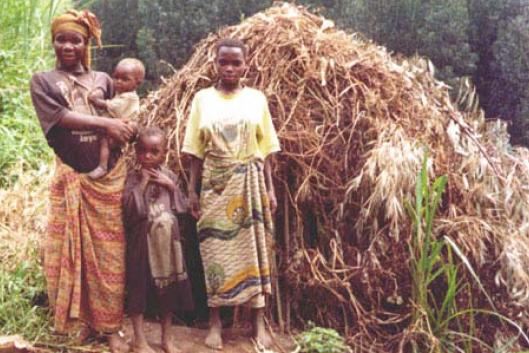Background
A number of participants at the World Social Forum 2004 met in Mumbai and believing that forest issues are in essence social and political and that forest communities are increasingly affected by globalization --and new forms of trade and economic liberalization that comes in its way-- agreed on the need to create a global movement to ensure forest conservation and peoples' rights over forests. The principles on which the movement would be based were agreed upon and circulated by the groups as the Mumbai Forest Initiative - Statement of Principles.
A year later the group and some other participants of the World Social Forum 2005 met in Porto Alegre, Brazil, reviewed and revised the Mumbai Forest Initiative. The result is the Mumbai - Porto Alegre Forest Initiative, with the following principles:
1. Indigenous peoples and other forest dependent communities living in and using forests for their survival needs are the true protectors and governors of these forests and enjoy inalienable rights over forests.
2. The protection and conservation of forests demand that their rights be ensured.
3. The institutional mechanisms for the social control by forest peoples -including indigenous peoples and other forest dependent communities – over forests will evolve according to the socio-ecological and economic needs of the communities and will take separate shapes according to the varied cultural profiles of the communities in various parts of the world.
4. The historical role and positive contribution of women in the governance and nurturing of forests must be recognised and their full participation in decision making must be ensured.
5. Governments must ensure an enabling environment for the community governance of forests.
6. Governments must ensure that legislation and policies comply with the above principles.
7. Society at large benefiting from the broad range of products and services provided by forests must support communities in their efforts to govern and conserve forests.
8. NGOs and other civil society organizations at national and international level committed to the conservation of forests and to the protection of forest peoples' rights should have a supportive role to peoples' initiatives to govern the forest and to be accountable to them.
9. We oppose NGOs and other civil society organizations involved in activities affecting or undermining forest peoples rights and interests.
10. Industrial logging and plantations, and so-called development and conservation projects which lead to deforestation and forest degradation and to the displacement of forest communities and livelihoods, cannot be allowed.
11 . We oppose any involvement of the World Bank, IMF, WTO and other International Financial Institutions in policies and projects than can affect forests and forest peoples.
12. The commodification of nature and forests by corporations, governments, international institutions and some NGOs is not acceptable.
This statement of principles is intended to contribute towards initiating a global process of solidarity building among movements, groups and individuals working on forest issues, at local, national and international levels. We appeal to all of you join this process.
Porto Alegre , 30 January 2005
World Rainforest Movement,
Delhi Forum,
National Forum of Forest People and Forest Workers of India,
Jharkhand/Save the Forest Movement (India),
New Trade Union Initiative (India),
WALHI/Friends of the Earth (Indonesia),
Tebtebba Foundation (Phillipines),
Coecoceiba / Friends of the Earth (Costa Rica),
Censat Agua-Viva (Colombia),
Red Alerta Contra o Deserto Verde (Brasil),
FASE (Brasil),
Sobrevivencia (Paraguay),
International Forum on Globalization (USA),
Accion Ecologica/Oilwatch (Ecuador)
Additional organisational & individual signatories:
Forest Peoples Programme (UK)
Down to Earth: International Campaign for Ecological Justice in Indonesia (UK)
Mangrove Action Project (USA)
Third World Network
Friends of the Earth International
Ecumenical Coalition on Tourism (Hong Kong)
Consortium for Supporting Community Based Forest System Management (KpSHK), Indonesia
Environmental Rights Action / FOE Nigeria
Institute of Cultural Affairs - Ghana
Foundation For Ecological Recovery - Thailand
Consumers' Association of Penang (CAP), Malaysia
Sahabat Alam Malaysia (Friends of the Earth, Malaysia)
PIPEC (PacificIndigneous Peoples Environment Coalition)
AtmosferikA.com - Spain
Probona Fosefor - Ecuador
>>> The Mumbai-Porto Alegre Forest Initiative as a real alternative for forests and forest peoples
>>> Brief comentary on principles of the Mumbai Porto-Alegre Forest Initiative
